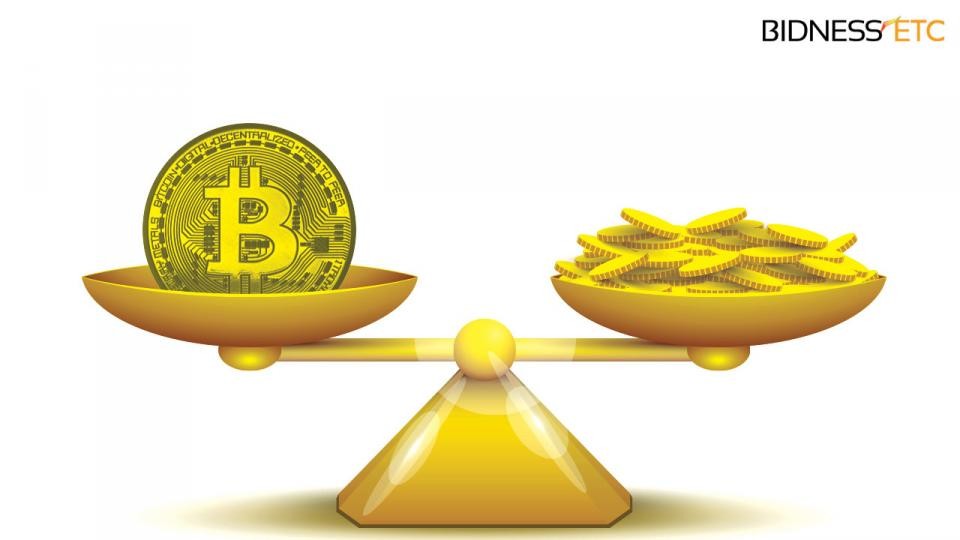Bitcoin Trusted Currency or Gold for Geeks HITC Business
Post on: 12 Апрель, 2015 No Comment

At its best, Bitcoin could be a trusted currency which transforms the way money is transacted.
A virtual currency, offering an alternative to the traditional, state-sanctioned financial system with potential to disrupt age-old established markets. At its worst, Bitcoin is nothing more than gold for geeks; an incomprehensible digital commodity used mainly for buying drugs and laundering money online.
The four-year-old currency has hit the news in recent weeks as prices surged from $20 in February to a staggering $266 this month, before plummeting and losing $160 in value in a single day. Many have pointed to this volatility as a reason for the currency to be avoided, veteran UBS stockbroker Art Cashin for instance has compared the Bitcoin craze to the tulip mania that led many to financial ruin in the 17th century.
Part of the problem is confusion in terms. Bitcoin has more in common with gold (limited supply) than traditional currencies (theoretically infinite in number). To start with, there’s nothing to keep Bitcoin liquid. Coins are mined via an arduous and largely unprofitable process of unlocking blocks of data that produce a particular pattern when the Bitcoin hash algorithm is applied to the data.
This doesnt do much to eradicate the gold for geeks label, but according to Blockchain.info, some miners are generating as much as $470,000 in Bitcoin revenue per day. However the difficulty with the ecosystem is that it inevitably leads to hoarding, and with no Bank of Bitcoin to release extra liquidity when this happens, price fluctuations and market volatility are inevitable.
What Bitcoins inventors have done is conjure value from thin air, as if someone announced right, over here we have the Emperor’s clothes, and you can buy them. Indeed, the very notion that money representing real value that can buy real things in the real world has been used to purchase 100 tons of an invisible commodity is alarming. And by extension of this, there is no control over who else might invent a similar currency.
There’s no constraint on global virtual money supply even if Bitcoin limit their own. Why would I hold Bitcoin when Hitcoin looks like a sure bet next week? It’s like betting on flies racing up a wall. At least real currencies have a semblance of connection with real economies doing well or badly.
However, beneath the chaos, Silicon Valleys best-known venture firms are finally starting to make real bets around the crypto-currency. From a technology investors point of view, the potential for disruption is enormous. If Bitcoin realises its full potential, it will be going head-on with billion dollar companies like Visa, First Data, MasterCard and Western Union. It is perhaps this potential that has led the Winklevoss twins who famously sued Mark Zuckerberg over the creation of Facebook, to accumulate one of the largest stakes of the crypto-currency. They say they own 1 percent of all Bitcoins in circulation.
And in practical terms, the value of creating an easy-to-store, difficult-to-steal, and impossible-to-counterfeit medium of exchange is substantial. Proponents have also suggested that it offers a system that is built around trusting individuals, rather than institutions such as governments and central bankers. Indeed the recent bubble was largely the result of thousands of savers who appeared to have lost trust in banks and governments.
Most notably in Cyprus where one person even promised to create a Bitcoin ATM. But at the heart issue is the fact that currencies are based on trust, and can you trust Bitcoin? I personally feel safer investing in a known quantity like a national government, than a botnet-infested network of anonymous individuals.
Describing Bitcoin as economically unviable gold for geeks is overly harsh and bordering on patronising to its inventor. Leading internet security expert Dan Kaminsky noted that creator Nakamoto deeply understands economics, cryptography and peer-to-peer networking, stating Either there’s a team of people who worked on this or this guy is a genius. Bitcoin will eventually stabalise, but it will be a gentle revolution.
True currencies, virtual or otherwise, need a central bank to manage supply which isnt very likely or feasible for Bitcoin. However, it cant be disputed that the notion of a cryptocurrency — impossible to counterfeit, entirely digital, instantly transmissible is a fascinating and potentially game-changing phenomenon. Its hard to imagine virtual currency in its current form changing the way transactions are made, but if Bitcoin or perhaps a descendent can learn the lessons from the recent bubble bursting, then there is great potential in the future for a virtual revolution in currency and a fundamental shift in how value is stored and shared.
James Brookner
James is a technology entrepreneur, a Director at Jab Innovation and a start-up enthusiast. He likes to write about trends in web and mobile technology as well as disruptive new start-ups.














